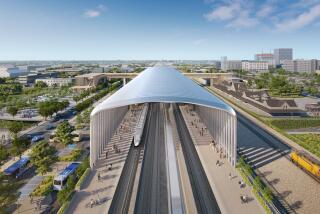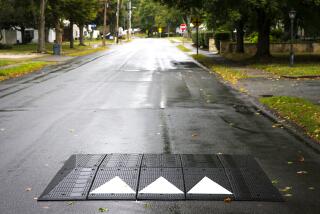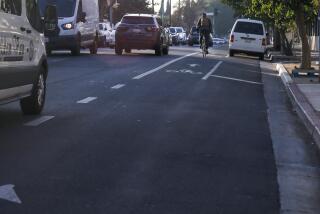Congestion pricing -- the only thing that works
There are three things to think about in light of Tim Rutten’s concerns over congestion pricing on local highways, which he outlined in his June 10 Op-Ed column, “Congestion pricing — a slippery slope to toll roads.”
First, if price does not ration road space, something else will. This means that heavy traffic on roads and highways that aren’t priced is a given. It is the default rationing mechanism. Anything made available without charge is quickly crowded. None of this is a matter of ideology, as Rutten seems to think.
Second, all the antidotes to congestion that have been implemented over the years have not worked and have been hugely expensive. The U.S. cities that have added rail transit in recent years have very little to show for their systems, except a lot of red ink. In Los Angeles, more than $7 billion has been spent on rail transit since 1985, but ridership is still too low to make a difference. The Los Angeles County Metropolitan Transportation Authority only recently reached its high watermark for ridership -- which was established in 1985!
Carpool lanes and anti-”sprawl” measures are likewise very costly and not promising for congestion relief. There is no evidence that carpool lanes have actually boosted carpooling. “Smart growth” land-use plans make housing and development more expensive. And, again, there is no evidence that they appreciably affect traffic patterns. Rutten bemoans public-sector cuts and shortages, but he does not mention that the wasteful programs and projects that we revert to when we avoid congestion pricing underlie much of the problem. Our roads are in awful shape because we have diverted (and wasted) billions of dollars from highway maintenance.
Third, Rutten’s objection to pricing is based on his concerns over “equity.” But the poorest of the poor would not be tolled, as most of them use transit. Buses on tolled freeways would move faster and be attractive to more people. And sacrificing bus service to build rail, as we have been doing, is surely inequitable. Financing expensive rail transit via sales taxes is hugely regressive.
Finally, as our experience with the tollway along the 91 Freeway in Orange County has shown, people in all walks of life value the time they save if and when they choose to pay the toll. Many get extra time with family, extra time to earn income or both. This is why no one calls these tolled lanes “Lexus lanes” anymore.
The fairest and most cost-effective option in urban transportation is rational pricing of highway space. The tragedy is that mistakes such as the ones Rutten embraces help to keep us mired in the status quo that so many people complain about.
Peter Gordon is a professor of real estate economics and public policy at USC.
More to Read
A cure for the common opinion
Get thought-provoking perspectives with our weekly newsletter.
You may occasionally receive promotional content from the Los Angeles Times.






